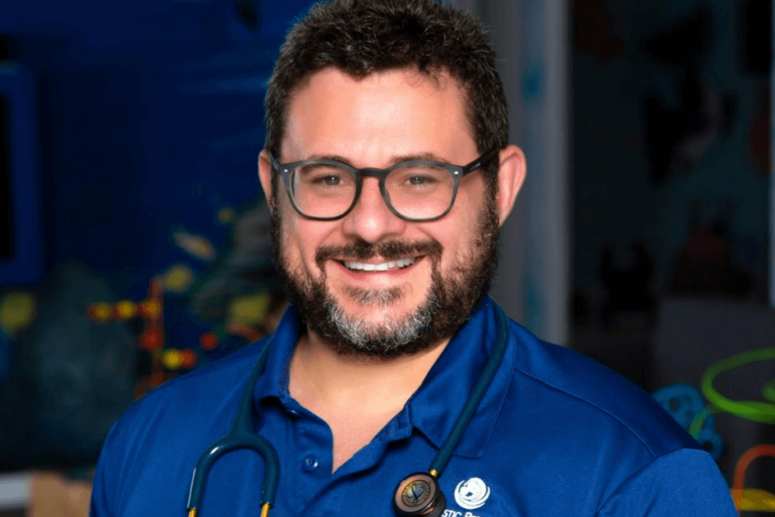
Table of Contents
Medical cannabis is a topic of growing interest, particularly in its potential application for various conditions. In Florida, however, autism spectrum disorder is not explicitly listed as a qualifying condition under the state’s medical marijuana law.
Despite this limitation, individuals with autism often experience symptoms similar to those associated with conditions that qualify under Florida law. “For instance, a person with autism may have irritability or obsessive-compulsive symptoms or anxiety or insomnia, similar to a person with post-traumatic stress disorder, a qualifying condition. So, we say that a person with autism suffers in a similar way to those particular symptoms for a person with PTSD,” explains Dr. David Berger, a medical marijuana-qualified physician based in Tampa. Dr. Berger is a board-certified pediatrician and founder of Wholistic Pediatrics & Family Care and its affiliated medical cannabis clinic, Wholistic ReLeaf.
A Careful Approach to Treatment
While Dr. Berger acknowledges the potential benefits of cannabis for autism-related symptoms, he stresses caution. He states he would “never tell a parent to start their kid on THC.” Tetrahydrocannabinol (THC) is the principal psychoactive component of cannabis, known for its intoxicating effects.
Instead, Dr. Berger prefers starting treatment with hemp-derived cannabinoids such as cannabidiol (CBD) and introducing THC gradually, if needed. “A lot of people don’t realize that CBD can blunt or can even stop the intoxicating effects of THC while the other benefits are there. One could even use CBD as an antidote to THC if they took too much THC,” he explains.
Dr. Berger also highlights the human endocannabinoid system, which regulates essential functions such as learning, emotional behaviors, immune response, sleep, and pain control. He believes CBD helps address a deficiency in endocannabinoids that may exist in some individuals with autism.
Exploring Cannabinoid Options
Dr. Berger’s practice extends beyond CBD. “And not just CBD, but I use a lot of CBG (cannabigerol) . . . in my practice, which is really good for anxiety. And I use a lot of CBN (cannabinol) in my practice, which is wonderful for sleep,” he adds.
Incorporating cannabinoids into a comprehensive treatment plan is part of Dr. Berger’s wholistic approach. This includes herbal medicines, nutritional strategies, and lifestyle adjustments for individuals with autism, attention-deficit/hyperactivity disorder, and related conditions. “Sometimes I have families who say, ‘I don’t want to put pharmaceuticals into my kid. I’d much rather put a natural substance into my kid,” Dr. Berger says.
Benefits and Challenges of Cannabis Treatments
The benefits of using cannabinoids for autism-related symptoms often outweigh the risks, according to Dr. Berger. One major advantage is the rapid feedback parents can observe when starting cannabinoid treatments. “Parents can observe the treatment’s effectiveness, or lack thereof, in a few days and adjust the dosage lower or higher if needed,” he notes.
This contrasts with pharmaceutical drugs, which can take weeks to show effects. Treatments are typically administered orally through drops or edibles, though skin patches provide longer-lasting relief, particularly useful for school-aged children.
However, administering medical cannabis at school presents challenges. “You can’t just leave [medical cannabis medications] with the school nurse for them to administer. The parent [or registered caregiver] has to come on the property, which many can’t,” Dr. Berger explains.
Legal and Practical Considerations
In Florida, smoking medical cannabis is illegal for individuals under 18, though vaping is permitted under certain conditions. Parents and caregivers are encouraged to keep detailed logs of dosages to track effectiveness and ensure optimal results.
One of the most notable side effects Dr. Berger observes is a reduction in patients’ reliance on pharmaceutical drugs. Additionally, improved behavior and functioning in children often ease the stress on parents and caregivers. “When you have a kid who’s better functioning, better behaving, then it takes a lot of the load off of the parents,” he says.
The Bigger Picture
The discussion around medical cannabis and autism treatment ties into broader considerations, including the role of the Individuals with Disabilities Education Act (IDEA). This federal law ensures students with disabilities receive appropriate educational services, but it does not address the use of medical cannabis in schools. Advocates suggest more policy development is needed to accommodate medical cannabis treatments for children with qualifying conditions.
As research progresses, medical cannabis may offer new opportunities for managing autism-related symptoms. For now, families in Florida must navigate the legal landscape carefully while exploring options under the guidance of qualified physicians like Dr. Berger.
Start Your Journey with Behavioral Intervention for Autism
At Behavioral Intervention for Autism, we are passionate about transforming lives through personalized, evidence-based approaches. Our ABA programs in Florida are designed to empower individuals with autism to reach their full potential. Whether you’re looking for early intervention or tailored plans for older children, we provide compassionate care and effective solutions that fit your family’s unique needs. With a team of dedicated professionals, we focus on building critical skills, fostering independence, and creating a supportive environment for growth. Let us guide you toward meaningful progress—contact us today to learn more about our services and how we can partner with you on this journey.
- 9 Common Obsessions of Children With Autism You Should Know - February 25, 2025
- What is Neurodiversity? A Guide to Embracing Differences - February 25, 2025
- Understanding Hyperfocus in Autism: What It Means and Why It Happens - February 25, 2025
